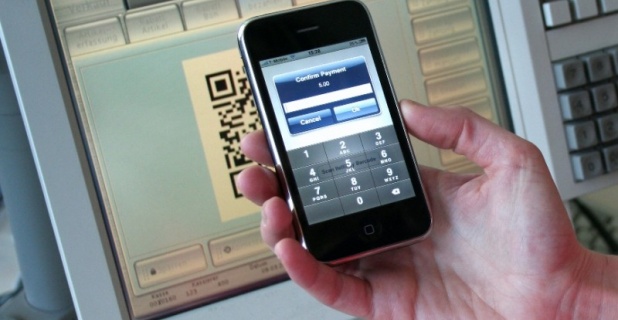After the computer age comes the mobile computer era. The on-the-go equipment is getting more and more multifaceted. Simple cell phones make room for smartphones and Tablet PCs with touch-screens can replace the PC at home and in the office. And retail is also getting more and more mobile – in its own processes as well as in its communication with the customers. Communication, dialog and mobile interaction will change everyday life of consumers.
How do users act with these new devices? Mobile interaction is one of the research topics of the Fraunhofer Institute for Industrial Engineering IAO.
How do devices need to be designed so that they are easy to handle? How do users make use of these gadgets? Yet mobile interaction is also a question of how users act amongst each other, since the mobile companions have long since been more than just data reception devices – they make mobile interaction possible. The users receive messages and can react to them. The development started with the cell phone receiving and sending SMS messages. For some time now you can surf the Internet with your cell phone, answer mails and stay in touch with “friends” via social networks while you are on-the-go.
New prospects for the retail market
Retail can utilize this mobile interaction as an additional channel for customer communication. The big goal of direct marketing comes true – dialog marketing. The customers don’t just receive advertising messages, they answer them and send them on to their circle of friends. What sounds so easy is in fact not without risk since the transmission often doesn’t happen in the original text. Users comment without the advertising company being able to prevent the spread of inaccurate, critical or harmful information.
It’s impossible to imagine doing without mobile helpers in the professional arena as well. Mobile data entry terminals, MDEs, are made for the tough environment in logistics and in retail. That’s why manufacturers aren’t afraid of the smartphone competition. Data is entered manually, scanned in and more recently contactless transferred via radio frequency information. The collected data can be buffered in the device and at the end of the workday – docked to the base station for battery charging – be transferred to the central server. This option is still more often being used than one would imagine in the wireless age, reports Nordic ID in an interview on this focal topic. With this, according to Lothar Struckmeier, Managing Director for the German-speaking countries, retailers avoid problems during real-time data transfer, which in his opinion are being overrated.
Young people grow up with mobile equipment
Mobile equipment changes the world – our everyday life, private life as well as professional life – and possibly also world history. In the current unrest in the Arab World, tweets, blogs and YouTube videos play an important role. The young, so-called “technical natives“, who grow up with mobile devices as a matter of course, will think less about the outcome than the older people do. The privilege of youth is its “storm and stress” and exuberance. In the process a lot might occur which may seem mundane, unnecessary or alarming to outsiders. However, the development can no longer be stopped.
The young already use new location based services which open up new doors in customer dialog for retailers. Mobile couponing, which sends out coupons depending on the location of the user, experiences a boom, indicates the German provider MyMobai in our interview.
This segment is still young and growth figures are accordingly high. The lines between advertising and information are starting to blur more and more. If you stand in front of a town hall, you don’t just get pictures and information about the historical buildings around the market square, but also the menu of the Ratskeller (a restaurant usually in the cellar of the town hall) or a coupon for the hair salon around the corner.
The cell phone becomes a universal tool
The cell phone can become a means of payment and facilitate identity verification. You can log into networks or prove your identity with a password and your cell phone. The era of having a multitude of credit cards in your wallet could be over, if rewards programs or credit card data is stored on the smartphone. Admittedly, the electronic health insurance card in Germany shows: The more intricate a system gets and the more participants with their different interests are involved, the more difficult its implementation becomes. And the eGK (electronic health insurance card) also shows: The more sensitive data is being stored, the more dangerous data loss through malfunctions and theft becomes. The fact that just now a global corporation like Sony wasn’t able to protect 77 million customers from hackers, gives critics new cause for mistrust.
New processes in retail













